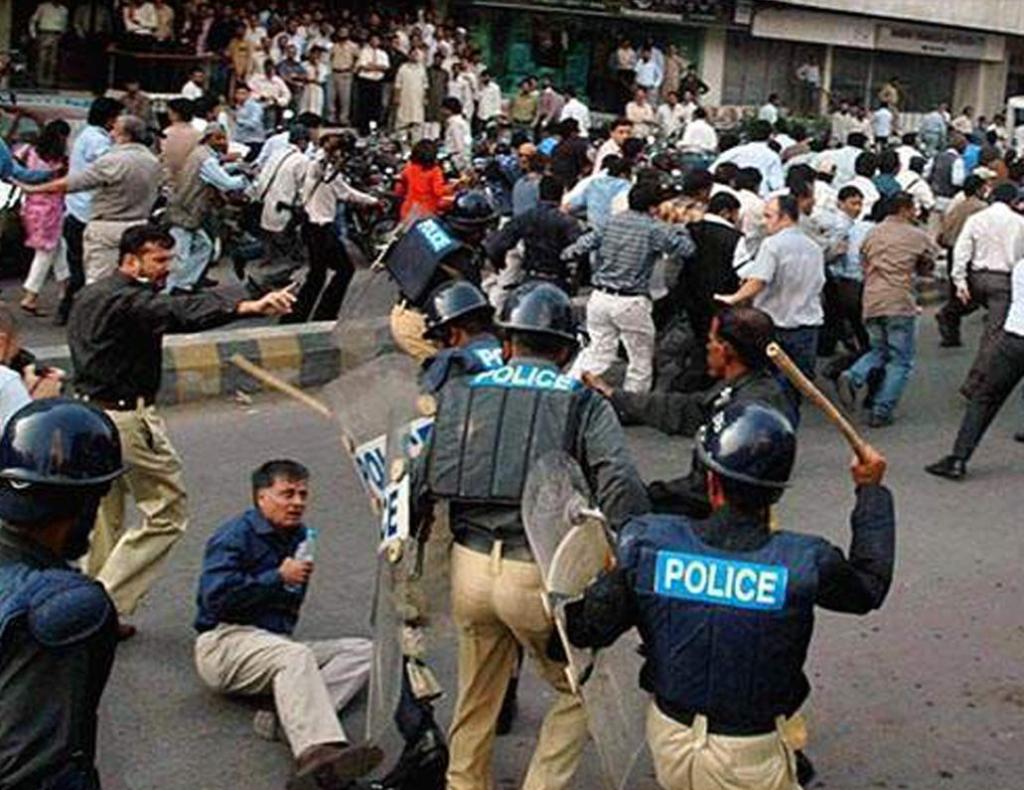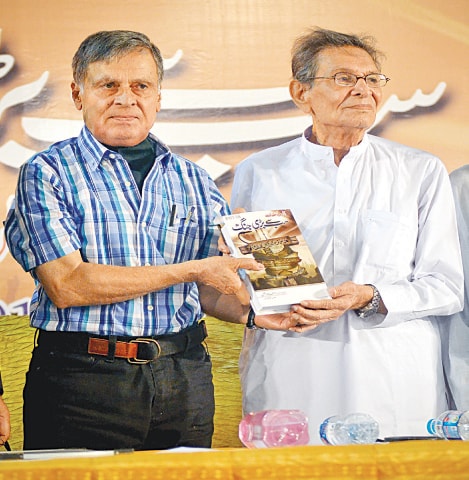
The Awami Workers Party (AWP) expresses its profound grief on the passing of Ahfazur Rahman, a renowned journalist, writer, poet and trade unionist.
AWP pays tribute to the journalist, the poet of resistance and finest human being for his life-long struggle for the working people, journalists, peasants and students.
He was fighting against throat cancer for the last decade and passed away at the age of 78 years in Karachi on Sunday morning.
In a joint statement AWP President Yousuf Mustikhan, Secretary-general Akhtar Hussain Advocate, Pakistan Trade Union Federation leader and Federal Committee member Safdar Sandhu, Organising Secretary Javed Akhtar, Karachi District President Shafie Sheikh, and others expressed heartfelt condolences with the family of the journalist.
The statement said Ahfazur Rahman was a great human being, a genuine revolutionary, a man of integrity and conviction.
He remained committed to the cause of working journalists, media workers and the working class of the country till the last breath of his life, commented Yousuf Mustikhan.
Ahfaz Rahman was one of the pioneers of the student and journalists’ movements against the dictatorial regimes and the corporate media, said Akhtar Hussain.
He belonged to a generation who witnessed the people’s agonies in the wake of the Partition of the subcontinent and dreamed of and struggled for building an egalitarian and fairer society, the statement read.
“He was a man of integrity who throughout his life struggled for press freedom, better wages for working journalists, peasants and workers”, said Akhtar Hussain.
He was among the rare breed of the Pakistani journalistic community which is fading out, he added.
Born at Jabalpur, Indian, in 1942 he migrated to Pakistan in 1947. Since his school days, he was inspired by the Progressive Writers’ Movement and joined the left-wing student organisation, National Students Federation (NSF) as its member of Executive Council and took part in 1962 and 1964 student movements against General Ayub Khan’s regime.

In 1969, he went to China to work for the Foreign Languages Press in Beijing, during the Cultural Revolution, worked with Chinese peasants.
Upon his return to Pakistan from China in 1972, Mr Rahman began his activism. During the historic journalist movement against Ziaul Haq’s regime in 1977–78, Rahman went underground and organised the movement for the freedom of the press and was arrested and sent to Camp Jail. Later he was taken out of the jail and debarred from the Punjab province for six months. In July 1978 Rahman went underground again to organise journalists, workers, peasants and student volunteers for court arrest.
Rahman was blacklisted by all major newspapers, as a result, he faced economic difficulties due to a long period of unemployment.
In 1985, he found employment in the Foreign Language Press in Beijing China, for which he had worked 16 years earlier.
After coming back to Pakistan in 1993, Rahman joined Urdu Daily Jang, as Magazine Editor. In 2002, he was elected president of Pakistan Federal Union of Journalists (PFUJ).
He constantly protested against the greed of the media owners for not giving the workers their due rights and for not implementing the wage board award. As a result, he was fired from service for his activism.
Mr Rahman also worked as magazine editor of the Urdu newspaper daily The Express, wrote columns, highlighting public and civic issues.
In November 2007, he was arrested for organizing protests against the General Musharraf regime’s decision to ban several media channels.
His poetry, according to feminist poet Fehmida Riaz, is “an engaging account of our collective yearnings for what this nation has yet to achieve”.
Ahfazur Rahman has to his credit 18 books and translations and is equally inspiring for his struggle for press freedom and implementation of Wage Board Award.
While battling cancer, Ahfazur Rahman along with his journalist and rights activist wife Mehnaz Rahman had written a book ‘Zinda Hai Zindagi’, (Life Goes On), chronicling the 1977-78 movement for the freedom of the press.
The short stories book had also become a metaphor for life’s struggle, a deep sense of anguish, people’s disillusionment with their dreams.
He was witness to the Cultural Revolution in China While he saw and appreciated some of the progress that China had made, he also saw some of the things in the wrong direction and criticised it.
In this time of crisis, when the country and world is locked in a fight against a deadly pandemic which is devastating working classes, Rahman’s struggle for accountability and justice are more relevant than ever.
As the current Pakistani rulers continue to attack the media, economically strangle journalists and restrict the free flow of information, Rahman’s struggle for press freedom and workers’ rights must be our guiding light in these dark times.
The party reaffirms its pledge to continue the struggle for establishing a just and fair society free from all kinds of exploitation, prejudices.
